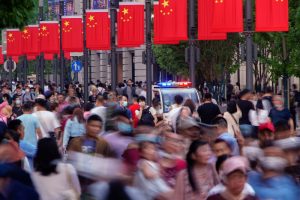A report by China’s Agricultural Industry Watch has revealed an array of serious problems in the farming sector, which has been hit hard by the ongoing flood crisis – the worst in decades.
The most notable of a series of new government measures is a plan to issue special bonds for struggling agricultural industries.
A significant amount of crops has been damaged by the flooding in a range of areas, while locusts have also caused concern and pig diseases have dramatically cut pork supply.
Meanwhile, national grain-storage silos have been found to be tainted, while the trade war with the US, the coronavirus and fears of bird flu, have all combined to raise the spectre of food shortages in coming months.
So, special bonds issued by the government are pivoting away from all the high tech and infrastructure plans partly towards the agricultural sector, although some of these new bonds for agriculture and rural development do have high-tech components as well.
This change has been approved by senior officials from a raft of key state agencies – the State Council, the Central Agricultural Office, the Ministry of Agriculture and Rural Affairs, the Development and Reform Commission, the Ministry of Finance, the People’s Bank of China, the China Banking Regulatory Commission, the China Securities Regulatory Commission, and others.
They have met to create a fruit salad of policies to expand investment and replenish prominent shortfalls.
Bonds to boost agriculture, rural areas
China will expand the scale of local government bonds for agriculture and rural areas, and increase support for major agricultural and rural infrastructure projects through general bonds and special bonds.
The special bonds aim to intensify the financial support for agriculture, rural areas and farmers.
Officials agreed that they need to introduce more inclusive financial policies to support the development of new agricultural business entities.
They want to “vigorously” develop credit loans and first loans for new agricultural businesses, so the government will effectively “play the role of an agricultural credit guarantee system.”
They also plan to accelerate the issuance of corporate credit bonds, and increase support for agricultural companies to issue shares in the open market.
Currently, China has formed a unique rural e-commerce economic model, but the country should also promote large-scale development of the agricultural economy, the research paper said.
So officials will build e-commerce industry clusters, as well as working to improve industrial electricity supply.
Chen Jin, director of the Modern Service Industry Research Center at the University of International Business and Economics, said China also plans to emulate the Vietnamese government, which approved a plan to develop its organic agriculture in the decade to 2030.
But to date, the amounts that will be spent via special and government bonds has not been released.
• Chris Gill
This page was upgraded on January 31, 2022 for style purposes.





















